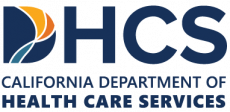June is PTSD Awareness Month, a time to acknowledge the far-reaching effects of trauma and advocate for those suffering in silence. While post-traumatic stress disorder is emblematic of combat veterans and other survivors of violence, physicians face similar challenges.
Over time, routine exposure to high-stress, emotionally charged, and life-or-death situations can lead to lasting psychological consequences, including PTSD. The Practice recognizes the unique pressures of the medical profession and helps physicians heal every day.
How PTSD Manifests in Physicians
Any highly charged, frightening, or profoundly emotional event can leave its mark on you in the form of trauma. In the medical field, this might include the sudden loss of a patient, making thorny ethical decisions, performing under immense pressure, or working in under-resourced and overwhelming environments. Fields such as emergency medicine, surgery, and critical care are especially vulnerable.
Common ways PTSD impacts physicians include the following.
- Decreased job performance: Symptoms like hypervigilance, emotional numbness, and difficulty concentrating can lead to mistakes, reduced efficiency, and a decline in patient care.
- Avoidance and isolation: You may withdraw from your colleagues, friends, or family to avoid reminders of traumatic cases, which further deepens feelings of guilt and loneliness.
- Physical health problems: Chronic stress and trauma can manifest physically as high blood pressure, fatigue, sleep disturbances, and gastrointestinal issues.
- Substance use: Physicians often self-medicate with alcohol, prescription medications, or illicit substances to escape distressing memories and emotions. Estimates suggest 10% to 15% of health professionals will develop a substance use disorder at some stage of their careers.
How to Recognize PTSD Symptoms
Years of training and practice have taught you to suppress emotion, power through exhaustion, and remain calm in chaos – but this emotional armor often conceals severe mental health issues.
You should routinely check for the signs of PTSD in yourself or a colleague.
- Intrusive thoughts: Recurring memories, nightmares, or flashbacks related to traumatic experiences
- Avoidance: Steering clear of conversations, settings, or people that remind you of traumatic events
- Negative mood changes: Hopelessness, emotional numbness, low self-esteem, or persistent guilt and shame
- Hyperarousal: Trouble sleeping, irritability, exaggerated startle response, angry outbursts, or being constantly on edge
- Self-destructive behavior: Risky behavior such as substance abuse, reckless driving, or neglecting self-care
Why Doctors Often Don’t Seek Help
Despite being highly educated about the human body and brain, many physicians resist seeking help for PTSD. You may worry about confidentiality, professional repercussions, or your reputation. The medical profession has a culture of endurance and self-sacrifice, often at the cost of personal wellness.
However, avoiding treatment only worsens the condition and puts you and your patients at greater risk.
A Sanctuary for Physicians
At The Practice, we provide a confidential, restorative retreat for doctors experiencing PTSD and other behavioral health challenges. Our physician-specific program offers:
- Comprehensive evaluations that assess your psychological, emotional, and physical health
- Evidence-based treatments such as trauma-informed therapy, EMDR, and mindfulness-based stress reduction
- Legal assistance to reinstate your thriving medical practice
- Confidential accommodations that allow you to heal without judgment or exposure
Healing Is Possible
PTSD is not a weakness – it is a natural response to prolonged trauma. As a physician, you have likely witnessed more pain, loss, and high-stakes decision-making than most people will in a lifetime. You deserve space to process those experiences.
This PTSD Awareness Month, let us remember that healers need healing, too. If you or someone you know is struggling with trauma, reach out to us. You can restore your health, protect your career, and return to your meaningful calling – stronger, more grounded, and whole.


